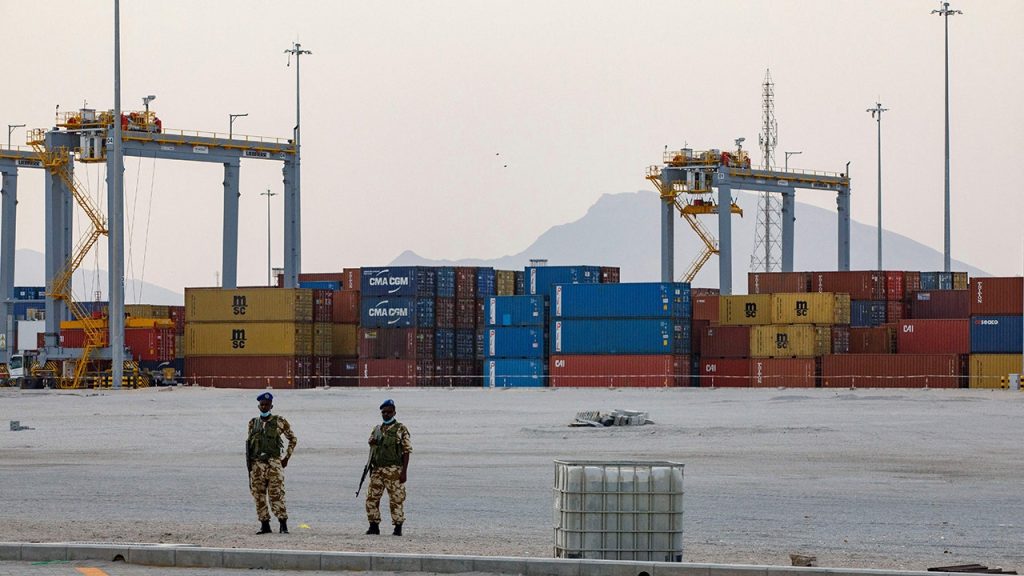Trump’s Strategic Move in Africa: Recognizing Somaliland
In a bold geopolitical maneuver, President Donald Trump is reportedly considering the recognition of Somaliland as an independent state, a move that could significantly reshape America’s presence in Africa. This potential diplomatic shift comes as Somaliland, which declared independence from Somalia in 1991 but remains internationally unrecognized, offers the United States a strategic military and economic foothold in a critical region. When asked about recognizing Somaliland during an Oval Office meeting on August 8, Trump confirmed, “We’re looking into that right now,” signaling serious consideration of this diplomatic overture. Senator Ted Cruz, who chairs the Senate Foreign Relations Subcommittee on Africa, has expressed strong support for this initiative, telling Fox News Digital, “There is a very real opportunity that President Trump will recognize Somaliland during this administration.” Cruz emphasized that such recognition would align with Trump’s approach to national security and represent a departure from what he characterized as the Biden administration’s tendency to “reward our enemies and punish our allies.”
The strategic value of Somaliland cannot be overstated. Located on the southern coast of the Gulf of Aden, the breakaway region sits at a critical maritime chokepoint through which approximately 30% of the world’s container ship traffic passes en route to or from the Suez Canal. Perhaps most enticingly, Somaliland is reportedly offering the United States a new air and sea base near the entrance to the Red Sea, directly across from Yemen where Houthi rebels have been disrupting international shipping. The port of Berbera is described as “the jewel in any Washington deal,” with one of Africa’s five longest runways nearby, providing potential for both naval and air operations. This position would enable American forces to counter both Houthi rebels to the north and Al-Shabaab terrorists to the east, addressing multiple security challenges in a single strategic location.
Unlike Somalia, which continues to battle Islamist fundamentalist fighters and is described by the U.S. as a “terrorist safe haven,” Somaliland has reportedly eliminated radicalism despite being 99% Muslim. This stability makes it an attractive partner for the United States in a volatile region. In his letter to President Trump, Senator Cruz highlighted Somaliland’s emergence “as a critical security and diplomatic partner for the United States, helping America advance our national security interests in the Horn of Africa and beyond.” The potential for a U.S. military presence near the Red Sea would complement America’s largest African base at Camp Lemonnier in neighboring Djibouti, where security concerns have grown due to Chinese and other foreign presences nearby. Somaliland President Abdirahman Mohamed Abdullahi expressed optimism about recognition, telling the British Guardian newspaper, “Recognition is on the horizon. It’s a matter of time. Not if, but when.”
Beyond military considerations, the economic implications of recognizing Somaliland are substantial. The region is offering access to rare earth minerals essential for high-tech industries, including lithium and silicon quartz. This economic component adds another dimension to the strategic value of establishing formal relations. Additionally, recognition of Somaliland would counter growing Chinese and Russian influence in Africa, a continent where great power competition has intensified in recent years. Both China and Russia have reportedly attempted to acquire access to Berbera’s port, underscoring the region’s importance in the global geopolitical landscape. By establishing a presence in Somaliland, the United States would gain not only military advantages but also economic opportunities that could strengthen America’s position in the global competition for influence and resources.
The potential recognition of Somaliland represents a significant shift from the longstanding “one Somalia” policy, which the State Department continues to officially maintain. A spokesperson told Fox News Digital, “The United States recognizes the sovereignty and territorial integrity of the Federal Republic of Somalia, which includes the territory of Somaliland.” However, developments on the ground suggest this position may be evolving. Somaliland’s foreign minister has been actively engaging with Washington politicians, and reports indicate that President Abdullahi is expected to visit Washington “soon.” U.S. officials, including Ambassador to Somalia Richard Riley, have reportedly met with the Somaliland president multiple times this year, indicating serious diplomatic engagement despite the official position.
Recognizing Somaliland would have far-reaching implications for U.S. foreign policy in Africa and beyond. It would create a new ally in a strategically vital region, potentially strengthening counterterrorism efforts against groups like ISIS and al-Shabaab while securing a position from which to address Houthi threats to shipping. The move would also signal a more assertive American approach to countering Chinese and Russian influence in Africa. Senator Cruz emphasized the bipartisan potential of this initiative, stating, “I expect that my colleagues on both sides of the aisle will be receptive to doing so.” If President Trump proceeds with recognition, it would mark one of the most significant shifts in U.S. Africa policy in decades, establishing a new military and economic foothold while recognizing a stable, democratic entity in a troubled region. For Somaliland, which has functioned as a de facto independent state for over three decades, U.S. recognition would represent a transformative diplomatic breakthrough that could finally bring it into the community of nations.


